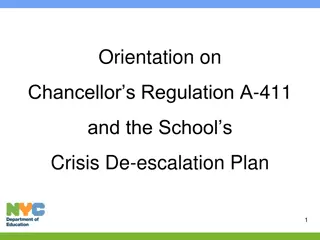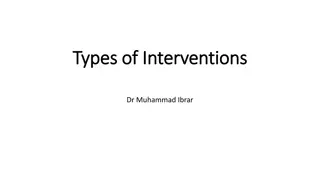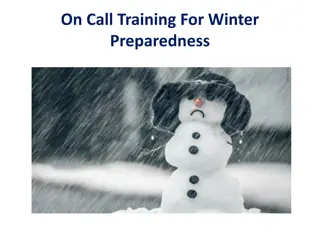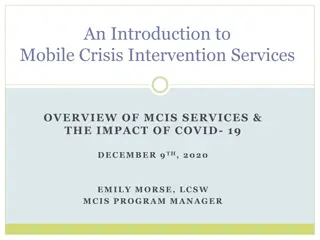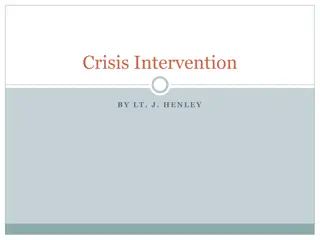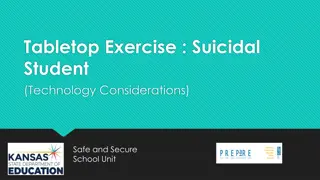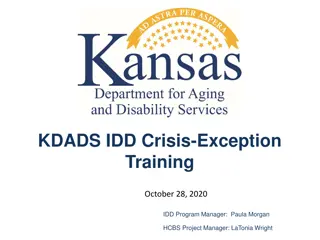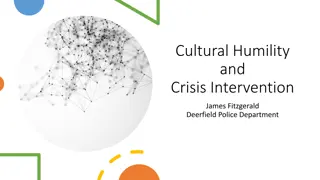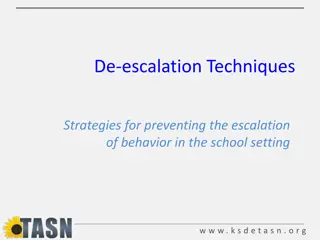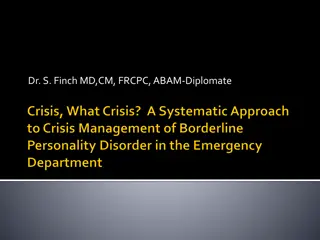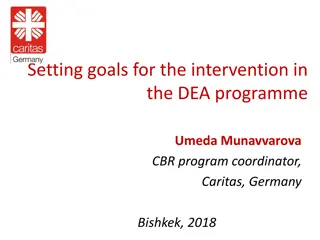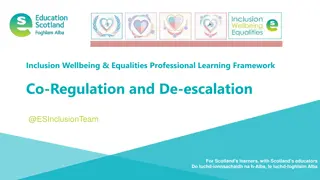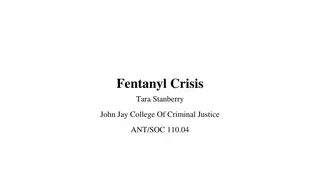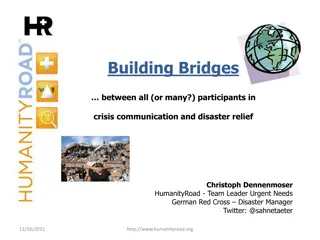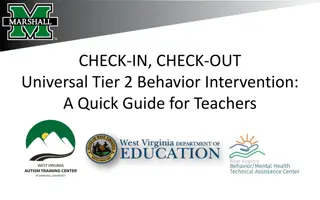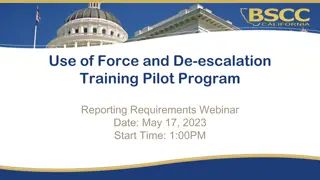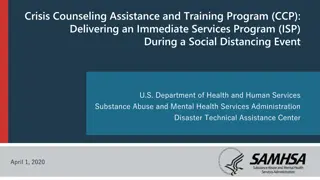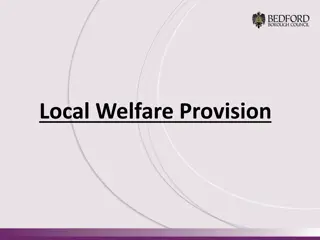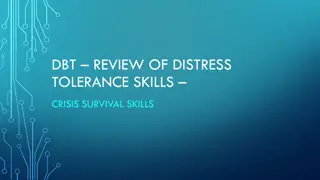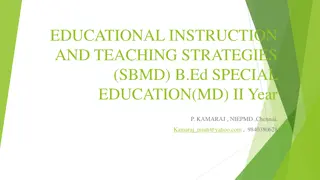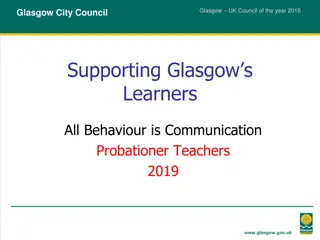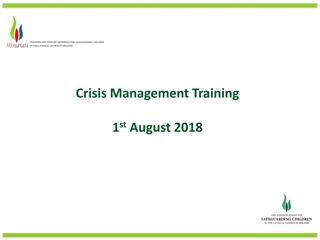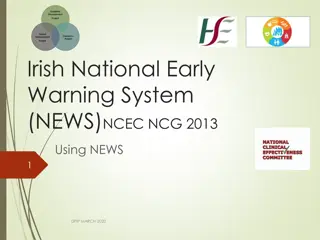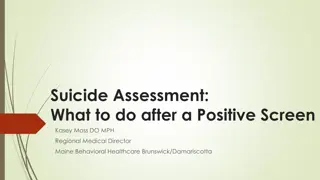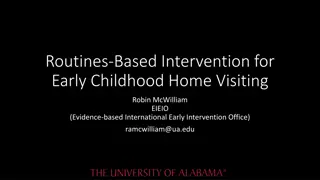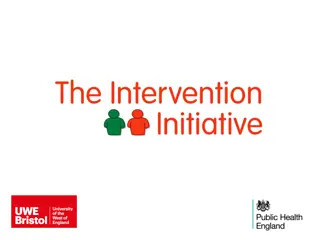Effective Strategies for De-Escalation and Relationship Building in Crisis Intervention
Learn how the quality of relationships impacts the success of interventions, the importance of addressing feelings before behavior, and key skills like validating and affirming in managing emotionally charged events. Discover the power of language in supporting positive behavior and effective behavioral interventions based on strengths.
- Crisis intervention
- Relationship building
- Behavioral interventions
- Positive behavior support
- Emotional regulation
Download Presentation

Please find below an Image/Link to download the presentation.
The content on the website is provided AS IS for your information and personal use only. It may not be sold, licensed, or shared on other websites without obtaining consent from the author. Download presentation by click this link. If you encounter any issues during the download, it is possible that the publisher has removed the file from their server.
E N D
Presentation Transcript
De-Escalation and Relationship Building Applying the Foundation Skills of (LSCI) Life Space Crisis Intervention
The Power of Relationships The Effectiveness Of An Intervention Often Hinges On The Quality Of The Relationship With The Helping Adult Well Designed and Informed Behavior Support Plans Often Fail Because The Helping Adult Fails To Establish A Positive Helping Relationship With the Child Sometimes A Poorly Designed Or Marginal Plan Is Successful Because Of The Quality Of The Relationship
WHEN DEALING WITH IN AN EMOTIONALLY CHARGED EVENT YOU MUST DEAL WITH THE FEELINGS FIRST BEFORE YOU CAN DEAL WITH THE BEHAVIOR FEELINGS , THOUGHTS , BEHAVIOR
CHILDREN WHO ARE HEARD LISTEN Kids want to tell their story
The Power Of Language Self Defeating vs. Bad Behavior Cooperative Problem Solving Discipline approach
Most Effective Behavioral Interventions Are Based on Strengths The ability to recognize child s strengths positive actions and intentions is key.
Two Critical Skills Validating The ability to acknowledge the feelings the child is experiencing or expressing Affirming The ability to recognize positive intent , use of prosocial skills or actions
THE CONFLICT CYCLE PARADIGM A STRESSFUL EVENT occurs which activates a troubled student s irrational beliefs. These NEGATIVE THOUGHTS determine and trigger feelings. FEELINGS, not rational forces, drive inappropriate behaviors. Inappropriate BEHAVIORS inciteadults. Adults take on the student s feelings and may MIRROR his behaviors. This negative adult REACTIONincreases the student s stress, escalating the conflict into a self-defeating power struggle. The student s SELF-FULFILLING PROPHECY (irrational beliefs) is REINFORCED; the student has no motivation to change thinking or behavior.
THE SCRIPT Acknowledge the feelings: Make 2-3 validating statements Affirm : Make 2-3 affirming statements Get the child s perspective and restate Set limits and give choices as needed
1 DRAIN OFF Drain off the student s intense emotions by acknowledging the feelings 2 TIMELINE Use affirming and listening skills to discover the student s point of view 3 CENTRAL ISSUE Identify the student s vital interest and give them their choices


